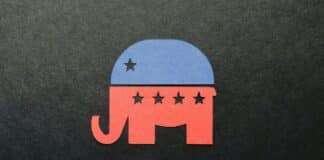The U.S. Army’s Protective Services Battalion (PSB), essentially the Pentagon’s Secret Service, has broadened its scope to include social media surveillance.
This expansion aims to protect high-ranking military officers from threats, even those potentially causing “embarrassment.”
While this development is being justified as necessary for national security, it raises significant concerns about privacy and freedom of speech.
According to an Army procurement document, the surveillance toolkit intended for use would be capable of collecting publicly available data, detecting perceived online threats, and even pinpointing individuals’ exact locations.
The ability to track negative sentiment towards senior military officials across social platforms has raised serious questions about the potential infringement on freedom of speech, a cornerstone of American society.
Ilia Siatitsa, program director at Privacy International, encapsulated these concerns, telling The Intercept: “Expressing ‘positive or negative sentiment towards a senior high-risk individual’ cannot be deemed sufficient grounds for government agencies to conduct surveillance operations, even going as far as ‘pinpointing exact locations’ of individuals. The ability to express opinions, criticize, make assumptions, or form value judgments — especially regarding public officials — is a quintessential part of democratic society.”
The extensive surveillance tactics proposed, including misattribution techniques to hide the Army’s identity during internet monitoring activities, have stoked fears about the potential chilling effect on freedom of speech.
In an environment where any social media criticism of military brass could attract government surveillance, citizens may become increasingly hesitant to express their views openly.
Moreover, the data collection isn’t limited to what is freely available.
The term “Publicly Available Information” (PAI) often covers commercially purchased private data, procured from a network of surveillance firms and data brokers.
The possible tracking of the public’s movements using location data from smartphone apps, both in the U.S. and abroad, further compounds the threat to civil liberties.
Siatitsa warned about the potential misuse of such practices: “Left unregulated, open-source intelligence could lead to the kind of abuses observed in other forms of covert surveillance operations. The systematic collection, storage, and analysis of information posted online by law enforcement and governmental agencies constitutes a serious interference with the right to respect for private life.”
The revelation of the PSB’s expanded surveillance mandate emphasizes the urgent need for a balanced approach to security measures that respect both the principles of freedom of speech and the privacy rights of individuals.





